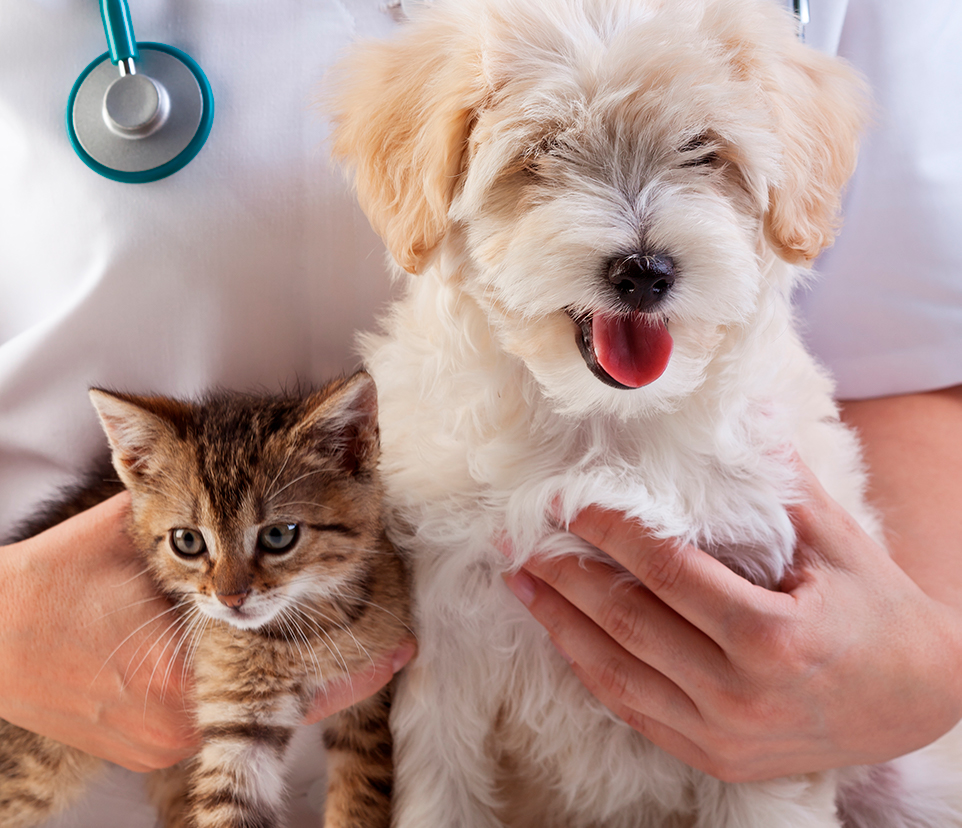Walk In Vets offers a wide range of veterinary services for our patients. Just a few of our wellness and preventive care services are listed below. For more information on these or other services, please call (925) 937-8387.
Services
Walk In Vets Mobile Services

Wellness Care
Preventive veterinary care is the cornerstone of keeping your pet their healthiest so that you and your pet can have more great years together. Since pets age more quickly than people do, it is critical to have regular physical examinations done to assess your pet’s health. During routine preventive exams, your veterinarian will assess:
- Overall Body Condition
- Eyes
- Ears
- Nose
- Mouth
- Throat
- Heart and Lungs
- Abdominal Organs
- Musculoskeletal System
- Neurologic System
- Urogenital System
- Lymph Nodes
- Skin/Coat
When health problems are identified, a medical plan will be outlined to evaluate the problems in depth. If your pet appears to be healthy enough for routine preventive care, your veterinarian will discuss which immunizations are advised, as well as parasite prevention including heartworm disease, intestinal parasites, and ectoparasites (fleas, ticks, etc.). Annual age-appropriate lab tests, testing for heartworm and/or tick-borne diseases, and fecal tests for parasites may also be recommended for your pet. Finally, your pet’s nutrition, diet, and exercise routines can be assessed and optimized to help your pet be in best physical condition for their lifestyle and age. Remember, keeping up with preventive care for your pet is the best way to keep your pet happy and healthy for life.
Sick Pet Exams
At Walk In Vets we understand that when your furry family member isn’t feeling well, it can be a stressful time for both pet and owner. If your pet is under the weather a thorough exam helps to identify and address any underlying causes of your pet’s illness. If your pet is unwell, don’t wait, call us today at (925) 937-8387 to schedule a prompt examination and start your furry loved one on the path to recovery.
Senior Pet Care
We love Senior Pets! Senior pets have special needs and benefit from more regular veterinary visits compared to their younger counterparts. Age-associated conditions include:
- Arthritis
- Dental Disease
- Heart Disease
- Liver Disease
- Kidney Disease
- Endocrine Disorders
These conditions will start to become more prevalent as your pet gets older. For this reason, we recommend twice-yearly veterinary visits for pets over 7 years of age. Your aging pet may be showing early signs of osteoarthritis such as stiffness after rest or play, difficulty going up or downstairs, and reduced activity. Early intervention with joint supplements and prescription arthritis medications when indicated, along with modified nutrition and exercise plans, can greatly improve your pet’s comfort and mobility. Likewise, performing annual screening lab work on your older pet can help identify early stages of medical problems that might go unrecognized, and progress significantly without treatment.
Some pets experience age-related behavioral changes that can be a sign of cognitive dysfunction, which is similar in some ways to dementia. Your veterinarian can recommend diet modification and supplements to help improve your older pet’s mental sharpness. Getting older doesn’t have to be fraught with troubles for your pet… see your vet regularly to help keep your senior pet healthy and comfortable.
Diagnostic Care
When your pet is sick or injured, they can’t tell us what’s wrong. A thorough physical exam and history (symptoms you’ve noted at home) are the first important steps. If the diagnosis is not immediately evident upon initial assessment, your veterinarian will recommend specific diagnostic tests. These may include:
- Laboratory testing for baseline blood counts and organ function tests, or infectious disease. Blood and/or urine samples may be collected from your pet, for point-of-care testing, or reference lab tests. Point-of-care tests are those tests that are done on-site in our hospital so as to be able to determine results and make treatment recommendations in the most timely fashion possible. In other cases, lab samples may need to be sent off to off-site laboratories (reference laboratories) – when the test cannot be performed with in-hospital lab equipment, or when the test results are not needed urgently.
- Imaging such as x-rays or ultrasound, which allows diagnosis of conditions of the heart and lungs, gastrointestinal obstruction, tumors of the internal organs or bones, fluid in the chest or abdominal cavity, urinary stones or gallstones, reproductive diseases, and bone/joint disorders. For most patients, gentle restraint can be used for these procedures, however, in some cases, sedation may be necessary.
- Microscopy is quite useful in the evaluation of lab samples such as ear swabs, skin impressions and scrapes, and needle biopsies of tumors. These tests are helpful in diagnosis of dermatologic and otic (ear) conditions.
- Ocular conditions may warrant evaluation for tear production (Schirmer Tear Test), corneal injuries (fluorescein stain), or abnormal intra-ocular pressures (Tonometry).
Diagnostic testing is an important step in the development of a treatment plan for your pet, allowing your veterinarian to most effectively target the underlying problem(s) and assess the probability of successful treatment. Your veterinarian can explain the purpose of each diagnostic test for your pet, and help prioritize which tests may be most helpful in determining the cause of your pet’s illness.
Parasite Control
Pets are a part of our families, and preventing parasite infestations is an important part of keeping them healthy. Both ectoparasites (external parasites) and endoparasites (internal parasites) can affect your pet at some point in their life. Ectoparasites, such as fleas and ticks, are not only a nuisance to your pet, but can transmit vector-borne diseases to humans and pets such as Bartonella (cat scratch disease, transmitted by fleas); Lyme, Anaplasmosis, Ehrlichia, and Rocky Mountain Spotted fever. Fleas can also cause a severe dermatologic condition for your pet resulting in very itchy, inflamed skin, due to flea allergy dermatitis.
Roundworms are the most prevalent endoparasite in pets. Others include hookworms, whipworms, and tapeworms. Pets are typically infected with these parasites through accidental ingestion of parasite eggs (which are microscopic) from areas that have fecal contamination from other infected animals. Alternatively, some parasites are acquired through ingestion of intermediate hosts such as rodents (Taenia tapeworm species; Toxocara roundworm species) or fleas (Dipyllidium tapeworm species). These parasites are also a health risk to humans and are considered zoonotic – meaning they can be transmitted from animals to people. For example, if a person accidentally ingests roundworm eggs, the larvae can migrate in the body and cause organ damage and potentially blindness. Hookworm larvae in the soil and grass can infect bare skin and cause a condition in people known as cutaneous larval migrans.
Heartworm is another important endoparasite, but one which is not zoonotic. Heartworm infections result from pets being bitten by infected mosquitos. The larval form of the heartworm travels through the bloodstream to the heart where it develops into an adult. The adult heartworms live in the right side of the heart and left untreated, result in progressive heart failure and death. In initial stages of heartworm disease, pets may be asymptomatic. As the condition progresses, symptoms may evolve including a cough and exercise intolerance in dogs, and vomiting/coughing in cats. Treatment of heartworm disease can be very risky for the pet, and very costly.
Because of the health risk to your family and pets, it is important to keep your pet on a year-round parasite prevention program. There are several preventives that when used properly, are very effective at greatly reducing the risk of your pet acquiring heartworm disease, intestinal parasites, and tick-transmitted diseases. Additionally, you can help prevent the risk of zoonotic disease to your family by practicing good hygiene (frequent hand washing), avoiding eating unwashed raw vegetables or undercooked meats and cleaning up pet feces in your yard. For more information about pets and parasites, visit petsandparasites.org, and consult with one of our friendly staff!
Dermatology
Skin conditions in animals can arise from various factors, including allergies, infections, hormonal imbalances, and environmental influences. Our skilled care specialists can aid in diagnosing and treating various skin issues with precision and care. Our dermatology services combine compassionate care with cutting-edge medical expertise to keep your pets happy, healthy, and comfortable.
Digital Radiography
Our radiology services provide a critical diagnostic tool to aid in the accurate assessment and treatment of various medical conditions. Our team of skilled team at Walk In Vets ensures the highest quality care for your furry companions. If your pet requires diagnostic imaging, trust our team to deliver exceptional care with precision and compassion.
Our services include:
Diagnostic Imaging for All Pets: Our veterinary radiology services cater to a diverse range of animals, including dogs, cats, exotic pets, and more. Whether your pet is experiencing orthopedic issues, respiratory concerns, or abdominal discomfort, our diagnostic imaging can provide valuable insights.
Orthopedic Evaluations: For pets experiencing lameness, joint pain, or musculoskeletal issues, our X-ray services are instrumental in identifying fractures, arthritis, ligament injuries, and other orthopedic conditions.
Soft Tissue Assessment: X-rays are invaluable in examining soft tissue structures, aiding in the diagnosis of conditions such as tumors, organ abnormalities, and respiratory concerns.
